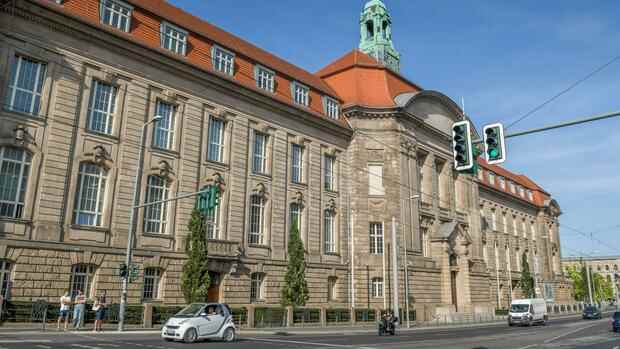Small and medium-sized businesses are being funded with more money, but is that enough?
(Photo: Imago Images)
Berlin For more than half a year, nothing has worked at the Central Innovation Program for SMEs (ZIM). In October, the old federal government imposed an application freeze for the important funding program. The money was missing.
But the blockade should end now. The traffic light coalition increased the funds for the ZIM in the last few meters. The responsible SPD MPs Bernd Westphal and Frank Junge explained: “This means that the extremely successful program can probably be reopened for new applications as early as June.” approved and funded.”
The program is important for the development of numerous German medium-sized companies. The ZIM funded an average of 3,500 projects per year. The outrage was correspondingly great when the old federal government had to impose a freeze on applications in October.
Due to the great demand, it became clear that the available money would not be enough. Only special projects of a small scope were approved. Around 2300 applications are currently still pending.
Top jobs of the day
Find the best jobs now and
be notified by email.
In the past few weeks, it has been in the balance for a long time whether the ZIM will actually be able to continue. The increase made it into the coalition agreement between the SPD, the Greens and the FDP. But Federal Finance Minister Christian Lindner (FDP) initially made no move to implement the project.
>> Read here: The corona crisis is damaging German innovative strength
He provided 600 million euros for the current year and 210 million euros for next year. According to the Federal Ministry of Economics, both were not enough to reopen the program. In the budget negotiations in April, the coalition partners first complied with the ministry’s request and increased the funds for the current year to 620 million euros.
Criticism from business
Internally, the coalition congratulated each other on having cleared the ZIM blockade. However, the Ministry of Economics then explained to the Handelsblatt that the “existing financial leeway for new approvals remains limited”. According to coalition circles, this was due to a lack of funds to approve multi-year projects. The previously estimated 210 million euros for 2023 would not have been enough.
In the first budget discussions, the traffic light coalition had already slightly increased the funds for 2023. Late on Thursday evening, in the final budget adjustment session, they raised another 80 million euros. 315 million euros are now available for 2023, which can already be promised to the companies. Reinhard Houben, economic policy spokesman for the FDP, said: “In the coming years we will strengthen medium-sized companies and start-ups.”
When asked, the Federal Ministry of Economics did not want to commit to reopening the program. Economics Minister Robert Habeck (Greens) wants to avoid a rush like the KfW efficiency house program, according to coalition circles. That is why the ministry is now working first on a sensible communication strategy for the ZIM. This will probably not stand in the way of new applications from June.
Criticism still comes from the economy. In a statement, the Federation of German Industries (BDI) makes it clear that doubling the funds at ZIM would have been appropriate instead of the small steps that have now been taken. Sebastian Bauer, President of the Working Group of Industrial Research Associations, said: “In view of the multiple crises that are now threatening the existence of some, the innovation activities of medium-sized companies must be supported more extensively.”
However, due to the tense budgetary situation, the traffic light had buried ideas early on to increase the ZIM and the promotion of small and medium-sized enterprises.
More: This number is an alarm signal for Germany as a high-tech location
